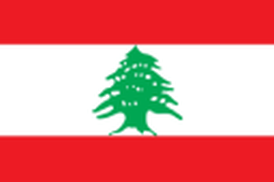
Author(s): Office of the Minister of State for Administrative Reform (OMSAR), Center for Public Sector Projects and Studies
Resource Type: Case studies
Countries: Lebanon
SDG: GOAL 16. Peace and Justice Strong Institutions
Keywords: Access to Information, Accountability, Corruption, Effectiveness, Transparency, Decision-making
Website for Public Sector Projects and Studies
Source in English: ESCWA-OECD Case Study - Public Sector Projects and Studies, Lebanon
The public sector projects and studies website was developed as part of the Government’s anti-corruption initiative, to provide access to public sector plans and studies and avoid duplication of efforts among public entities. Providing access to an updated central database of public sector studies and information could support decision making and guarantee a better allocation of public funds.
Implementation: 2002
Contributor(s)
The Center for Public Sector Projects and Studies at the Office of the Minister of State for Administrative Reform (OMSAR) in collaboration with all public sector entities, the Council for Development and Reconstruction (CDR), the Council of Ministers, the Ministry of Finance, and the Central Inspection, as well as international organizations that conduct studies in Lebanon.
Purpose
The initiative aims is to ensure a holistic vision for developing the public sector and to avoid the duplication of funding and studies across public entities. It also seeks to provide public access to all studies, improve coordination among government bodies, enhance transparency, promote the exchange of information and rely on the analysis and evaluation of existing data for conducting new projects and studies.
Functions
This website allows ministries and public administrators to access all relevant data that support the decision-making process. It constitutes a centralized platform for publishing and organizing all studies and data that could benefit the public sector, such as geographic information system (GIS) data, laws, legislations, strategies, plans, decisions, and international agreements and conventions signed by Lebanon.
Clients
Key beneficiaries of this initiative include decision makers at all levels of government, ministries and public bodies, civil society and international organizations, students and academic institutions, and private sector companies, as well as the general public.
Outcome
Providing public access to all existing studies and relevant data reduces the possibility of repetition of public sector studies and contributes to a better use of public funds.
Challenges
- Lack of cooperation of some ministries that do not share their available studies, which has a limiting effect on the website content.
- The legal mechanisms do not ensure a timely compliance to the related circulars.
- Availability of funding and human resources for the continuous update and maintenance of the website.